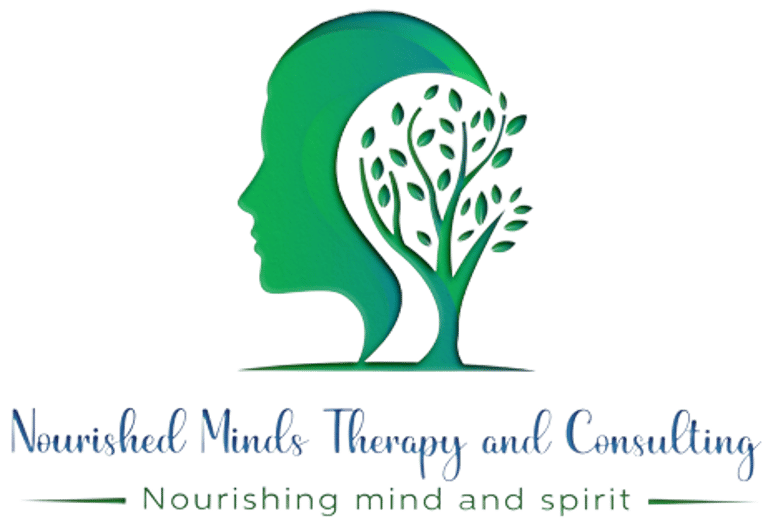

Imagine a client sitting in a therapist’s office, sharing the painful reality of living in an abusive relationship. The bruises are hidden, the emotional scars deeper, and the fear palpable. Now, picture the therapist responding, “I can’t take sides, but I can teach you how to ground yourself during and after the abuse.” If this scenario feels jarring to you, it's because it reveals a critical truth: neutrality in the face of oppression is a stance that inevitably supports the status quo. In this case, remaining “neutral” in the face of domestic violence becomes a tacit acceptance of the abuse itself. I strongly believe this same principle applies to therapy more broadly. The idea that therapy can or should be apolitical is a myth, one that ignores the lived realities of clients and the sociopolitical contexts that shape their lives. And one that has farther reaching dangerous consequences than even the domestic violence example I draw comparisons to throughout this blog. As you read this post, I invite you to breath, notice your "but, wait's" and "my program said's..." and (if you're reading this from a client perspective) notice your "but, my therapist stays neutral so...s." I am going to ask you to notice those impulses, set them beside you at least long enough to take in the scope of this post, reflect, and see if inviting in that dissonance can potentially open up space for change that just might be greater healing.
The Illusion of Neutrality in Therapy
Therapists often strive to create a nonjudgmental space for clients, an environment where they can express themselves freely without fear of condemnation or bias. This is an essential part of the therapeutic process, allowing clients to explore their thoughts, feelings, and experiences openly. However, this commitment to nonjudgmentalism is not the same as neutrality, and the conflation of the two can be dangerous.
Neutrality implies that a therapist can be an impartial observer, uninfluenced by the sociopolitical dynamics that impact their clients’ lives. Yet, just as it would be unethical to respond with neutrality to a client experiencing domestic violence, it is equally problematic to maintain a neutral stance on issues like racism, sexism, homophobia, or economic inequality. These are not just "abstract" concepts that are personal to a client; they are real forces that affect clients’ mental health and well-being.
A therapist’s decision to remain “apolitical” in the therapy room can inadvertently reinforce the oppressive structures that contribute to a client’s suffering. For instance, a client of color who experiences racial discrimination may struggle with anxiety and depression as a result. If their therapist avoids discussing the racial context of these experiences, instead focusing solely on coping mechanisms, the client is left to navigate a deeply political issue alone. The therapist’s silence on these matters can be perceived as complicity, reinforcing the client’s sense of isolation and invalidation.
Therapy as a Political Act
Therapy is inherently a political act because it involves power dynamics, both within the therapeutic relationship and in the broader societal context. The very act of entering therapy—seeking help, reflecting on one’s experiences, and striving for change—is a challenge to the status quo. It is an acknowledgment that something in one’s life or the world is not as it should be, and it is a desire to shift that reality.
Consider the example of a client who is struggling with the impacts of systemic poverty. They may be dealing with chronic stress, a sense of hopelessness, and a lack of access to resources that could improve their well-being. A therapist who views therapy as apolitical might focus solely on helping the client manage their stress or reframe their thinking, without acknowledging the larger economic forces at play. However, this approach overlooks the fact that the client’s suffering is not just a result of individual choices or internal factors but is deeply connected to external, political realities.
To be fully effective, therapy must acknowledge and address these realities. This does NOT mean that therapists should impose their own political beliefs on clients; rather, it means recognizing the ways in which power, privilege, and oppression impact mental health. It means understanding that a client’s struggles cannot be separated from the societal context in which they occur and that healing often requires not just personal insight but also social change.
Taking a Stand in the Therapy Room
Returning to the earlier analogy, imagine a therapist responding to a client experiencing abuse in their home not with neutrality but with a clear stance against the abuse. This doesn’t mean telling the client what to do but rather validating their experiences, helping them recognize the abuse for what it is, and supporting them in making empowered choices about their safety and well-being. It means assisting them with resources to stop the abuse or safely move away from it. It means acknowledging the power dynamics at play and standing with the client in their journey toward reclaiming their autonomy.
Similarly, when a therapist works with a client who is facing racial discrimination, economic hardship, or gender-based violence, taking a stand doesn’t mean imposing a particular political ideology. It means acknowledging the reality of the client’s experiences, validating the pain and anger that may arise from these injustices, and supporting the client in navigating these challenges in a way that honors their dignity and humanity.
For instance, a therapist might help a client explore how systemic racism affects their sense of self-worth or how economic inequality contributes to their anxiety. This might involve discussing the ways in which these issues are not just personal struggles but reflections of broader societal problems. By doing so, the therapist helps the client see that their suffering is not a personal failing but a response to real and unjust conditions. This recognition can be empowering, helping the client to shift from a place of shame or self-blame to a place of clarity and agency.
The Risks of Apathy and Silence
When therapists attempt to maintain an apolitical stance, they risk minimizing or overlooking the sociopolitical dimensions of their clients’ struggles. This can have serious consequences for the therapeutic process. Clients may feel misunderstood or invalidated if their therapist fails to acknowledge the external factors contributing to their distress. In some cases, this can lead to a rupture in the therapeutic relationship, as the client may come to see the therapist as out of touch or even complicit in their oppression.
Moreover, an apolitical approach to therapy can reinforce harmful narratives that place the burden of change solely on the individual. It can suggest that if a client just works hard enough, they can overcome any obstacle, regardless of the systemic barriers in their way. This narrative is not only unrealistic but also deeply unjust, as it ignores the very real and often insurmountable challenges that marginalized individuals face. In addition, it reeks of toxic positivity (more on this in a later post).
Therapists have a responsibility to challenge these narratives and to help clients see the bigger picture. This might involve discussing the ways in which societal structures contribute to their struggles or exploring the intersections of identity, power, and privilege in their lives. It might also involve advocating for change outside the therapy room, whether through social activism, community engagement, or simply speaking out against injustice. Wouldn't you want to help your client understand they are not at fault if they were abused? That the responsibility for the abuse lies solely with the abuser? If you answered, "of course!" to this question, pause and consider why you may not feel this same sense of fidelity towards assisting clients with placing appropriate responsibility on an abusive system?
Therapy as a Space for Empowerment and Social Change
At its best, I believe therapy is a space for empowerment. It is a place where clients can come to understand themselves more deeply, to heal from past wounds, and to find the strength to make changes in their lives. But empowerment is not just about individual change; it is also about recognizing and challenging the forces that keep people oppressed.
When therapists engage with the sociopolitical dimensions of their clients’ lives, they help to create a more just and equitable world. This might involve supporting a client in navigating the legal system after experiencing discrimination, helping them connect with resources in their community, or simply providing a space where they can talk openly about the injustices they face without fear of judgment or dismissal.
Therapists can also empower clients by helping them to see their struggles in a broader context, one that includes not just personal history but also the history of the societies in which they live. This can be particularly important for clients who belong to marginalized groups, as it can help to counteract the internalized oppression that many people carry as a result of living in a society that devalues their identities.
Toward a Politically Conscious Therapy
Therapy cannot be "unbiased" politically because the lives of clients are not apolitical. Every client who walks into a therapist’s office brings with them a unique set of experiences shaped by their identity, their history, and the world around them. To ignore the political dimensions of these experiences is to ignore a fundamental part of who they are.
Again, this does not mean that therapists must have all the answers or that they should push their own political agendas onto their clients. Rather, it means recognizing that therapy is not just about helping individuals cope with their problems but also about understanding and addressing the larger forces that contribute to those problems. It means standing with clients in their struggles, not as neutral observers but as allies committed to justice and healing.
In the same way that we would never dream of remaining neutral in the face of domestic violence, we must also refuse to remain neutral in the face of systemic injustice. To do otherwise is to fail our clients and to miss the opportunity to use therapy as a force for both personal and social transformation.






